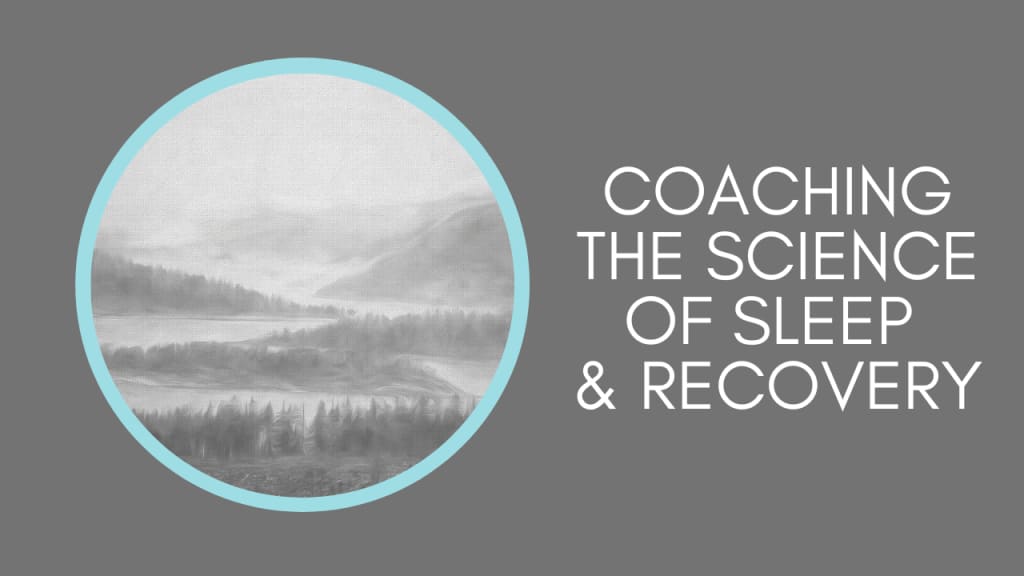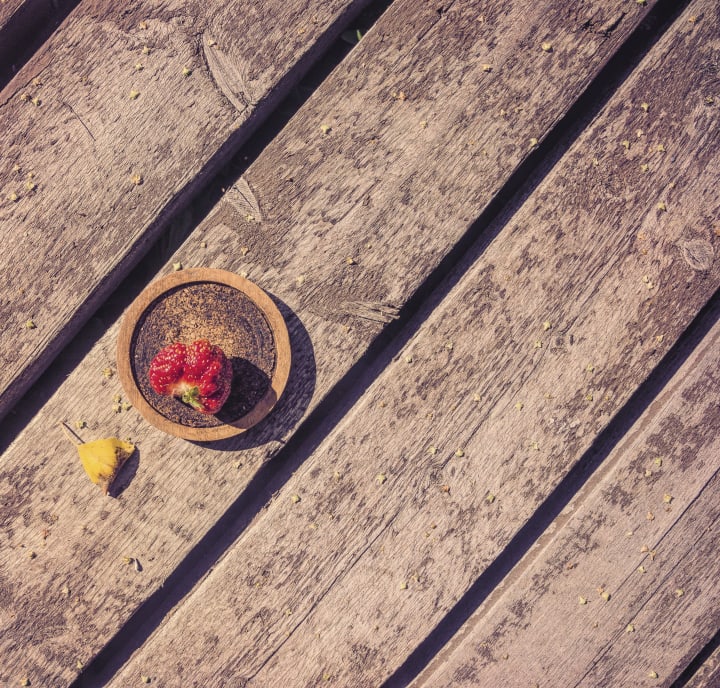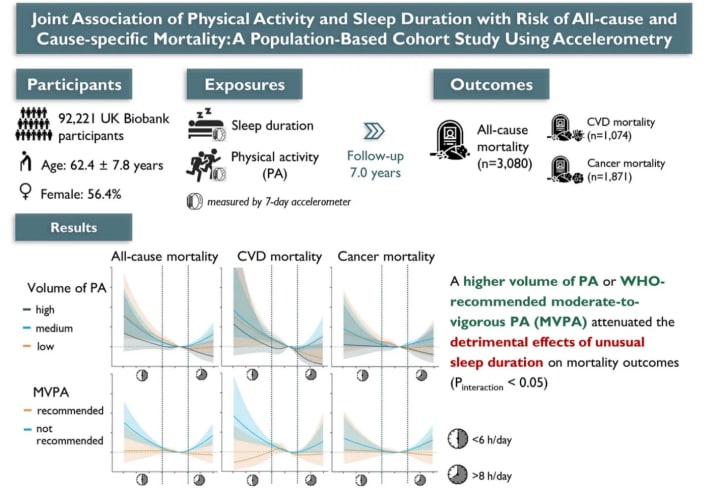FACTS & SCIENCE. THE IMPORTANCE OF SLEEP AND RECOVERY FOR OUR HEALTH AND FITNESS.
Another fact-based Styrka article from yours truly.

Do you have to sleep a perfect 8 hours every 24 hours? No, not at all. So please do not obsess about the exact amount of sleep you are getting.
However, getting enough sleep over time has a tremendous impact on our health, fitness progression, recovery, and well-being. In fact, study after study makes it clear that sleeping too little on a regular basis makes people less fit, capable, and a lot worse off, as far as their health goes.
Sleeping too much is on the other hand not much better than sleeping too little. So the purpose of my article is to exist as a fact-based guide that will help you develop a better foundation for your sleep, through your small health-promoting choices.
Because that is all there is to it.
We create healthier sleep patterns through our day-to-day choices. And no one will ever get to enjoy nothing but perfect sleep in quality and quantity, so do not fret and brood too much when you do experience a night of poor sleep.
Just take it for what it is, and feel assured in understanding that we all experience some lackluster sleep at times, and adjust your everyday choices if needed.

I have previously talked about coffee being a positive thing for our health, and fitness progression.
And it is.
But consuming too much coffee, and caffeinated products, especially so if you are having all that beautiful coffee and caffeine too late in the day, can and will have adverse effects on your sleep.
So, even if you believe that you are bulletproof and can carouse in your caffeinated fun right before bedtime, just don’t.
Coffee takes a long time to get out of our system, so I usually recommend clients to not have coffee after 15.00. This will make sure that you get to enjoy the health benefits of daily coffee while making sure it doesn’t wreck your sleep quality.
Yes, I know. Some do their workouts after work, in the evening, and do love their pre-coffee and or other pre-workout drinks. So, if you are one of those late gym goers, then for you it’s a matter of priorities.
Priorities and understanding the fact-based cause and consequences of your choices.
You see, coffee and pre-workout drinks do have a very real impact on fitness capacity ( albeit minor ). So it is a valid preference to include it in your pre-gym routine.
But it will also have an adverse effect on your sleep quality if this takes place too close to your bedtime, so for me, there is no coffee in my life after 15.00.
And my coaching advice is to train earlier in the day if you can. That way you get the best of all worlds. Pre-gym coffee, a great workout, and the best possible sleep, this is my own approach, gym before work or during a period of extended lunch hours, and no coffee after 1500.
But, what if you can not do the gym earlier in the day?
Well, ask yourself if that cup of coffee or pre-workout drink is worth the resulting decline in sleep quality. I do not think so personally or as a coach, but that choice is ultimately your own to make.
Just keep in mind that the actual fitness impact of coffee or pre-workout drinks is pretty small. The effect is real for sure, but it is also a small one. And on the other end of the fact-based scale, you have to measure it up against the impact of poor sleep which to has very real and negative effects on your ongoing health, fitness, and recovery.
Worse, the cumulative effect of poor sleep far outweighs the positive impact of that pre-gym coffee.
I know, sleep and recovery sound so unsexy when you compare them to a great caffeinated workout, but it is a real and impactful daily aspect of our healthy fit lifestyles.
SHORT AND SWEET.
BAD SLEEP CAN BE MITIGATED WITH FITNESS.
Yes, there is good sleep-related news hiding behind your fitness schedule. You see, all that bad health and fitness stuff that happens when we sleep too little, or too much, most of it can be mitigated by staying active in the gym. Not to mention that a healthy amount of fitness activity drives better sleep quality and quantity.
But what about fitness mitigating the health outcome of bad sleep? Well, please note that I am saying mitigating most of it, not all of it.
No matter how hard you train, you can not completely make up for skipping out on your sleep. Just like great gym ethics can not outwork poor food choices. And great food choices can never make up for poor fitness.
If you train hard enough, your recovery and performance the day after will 100% depend on your nutrition and sleep. Not to mention that a lack of sleep drives many other health, fitness, and body composition-related factors, like blood pressure, insulin response, and recovery from all that training and daily life grinding.
Our system needs enough quality sleep to function properly. From lean muscle mass and strength progression to the health and state of our brain and other organs.
But, while your fitness progression depends on good enough sleep quality and quantity, the poor health effect of not sleeping enough can somewhat be mitigated by a regular fitness routine.
This, of course, creates yet another good incentive for regular gym visits and a good, fact-based fitness routine.
But, it is also another reminder that regular gym, fitness habits, healthy foods, and good sleep walk hand in hand through life, and it is when you maintain all three that you will do your very best fitness progression. And maintain peak health, wellness, and aging.

THE STUDY AND ITS SCIENCE.
In one study, published early 2023 we have a total of 92 221 participants. Aged 63 years on average, of which 56.4% were female. This study took place between February 2013 and December 2015 and you can read it by clicking here.
During the follow up 3080 adults died, 1074 due to cardiovascular disease, and 1871 from cancer. But when the scientists included participants’ level of physical activity the risk for disease and premature death from any causes decreased in relation to their exercise and physical activity level.
As you can see in the image-based conclusion above this text sleeping less than 6 hours or too much both have a negative impact on a person’s health & longevity.
And the more active you are the better your health outcome.
It is worth reminding you at this state that your fitness progression and physical and cognitive capacity in general, well-being, mood, health, aging, and appearance have their best outcome with regular fitness, good foods, and proper sleep so there are a lot of other good reasons to maintain a good and proper sleep schedule and sleep volume, and basically zero good reasons to skimp out on your quality sleep.
But what this study does show us is that poor sleep is never a good reason to skip your gym days, because regular physical activity promotes a far better health outcome over time even for people that sleep less than 6 hours per 24-hour cycle.
MORE THOUGHTS ON THE STUDY & SOME SMALL STUFF THAT WILL HELP YOU CREATE A BETTER SLEEP ROUTINE.
In the participants that got by with the least amount of sleep or too much sleep, the least amount of physical activity increased their mortality risk by 16 & 37%.
While participants that managed to get enough fitness activity in their life only had an increased mortality risk from too little sleep, completely offsetting the poor sleep impact of sleeping too much per day.
We can only speculate here, but sleeping too much makes people far more sedentary, so it is easy to imagine that the many health benefits of getting enough physical activity in our daily life completely offset the impact of worse health from sleeping too much on a daily basis.
And finally, the group that trained and remained the most physically active ended up with no additional mortality risk increase no matter if it was too little or too much sleep.
There are, of course, plenty of studies out there that tell us that getting enough sleep improves our fitness progression and recovery. It helps out with maintaining a lower amount of body fat while tapping up our athletic and cognitive functions, capacity, and our health in general.
Sharper memory, alertness, problem-solving capabilities, lowering anxiety, and dealing with stress are other things that are related to the quality and amount of our sleep.
So, how would you go ahead and create a better outcome for your sleep quality and quantity?
Small daily baby steps are the coach-based answer. And if you are wondering just how much sleep is enough, aim for anything close to 7 to 8 hours of good quality sleep per night. In other words, there are no upsides to a life schedule that makes you sleep 6 hours or less or 9 hours and more.
My short coach’s checklist for better sleep.
No coffee, or caffeinated drinks after 15.00.
No alcohol, or at least as little as possible, and as rarely as possible, because alcohol consumption doesn’t help your sleep quality. And it doesn’t have any positive effects on your health no matter how much media and the industry ads try to make it a positive part of our lives.
Maintain fairly regular sleep hours.
This one is much easier than it sounds like. Aim for bedtime at roughly the same hour every day. And wake up at roughly the same time every day.
With that said, if you have teenagers at home, and especially athletes, let them sleep in when it’s the weekend. Modern-day life isn’t well adjusted for the sleep cycles of teenagers.
We are creatures of habits, and our circadian cycle is no different. You program yourself by being fairly regular.
If you sleep in or can’t fall asleep, don’t freak out. Stressing about it won’t help you sleep better, and we all have some days of lackluster sleep per month, it’s natural, and we can handle it if it is not a chronic sleep issue.
Regular fitness, preferably earlier in the day.
Yes, regular fitness also helps us sleep better. Especially if it is happening earlier in the day. Because the workout high can if you train late in the evening delay your sleep cycle a bit. But, the sum of it all is that regular fitness is very good for your health, and your sleep quality, the more regularly we train, and the harder we push ourselves the bigger the recovery needs and sleep is the mother of recovery. So good, regular fitness and good sleep usually go hand in hand.
Extreme athletes can of course tilt over into their sleep being disrupted by their overly demanding fitness life. But, those are outliers usually reserved for professional athletes. For everyone else fitness promotes better sleep.
Talking about our circadian cycle, getting outside early in the day for a walk, jog, or run also help reset your biological day-night clock, while giving you a range of other health-promoting benefits, like a daily onset of hormones. Sunshine in enough quantities is really healthy for us and for our sleep. From vitamin D to happy hormones, and the day-night sleep cycle itself.
As a bonus, regular daily physical activity promotes many other health benefits. And going to the gym doesn’t make those daily walks pointless. far from it, it is a great sidekick that every human on the planet should incorporate into their life.
Healthy food and hydration habits.
Eating enough but not too much promotes better health fitness and potty visits my friends. And in the end, better sleep. This includes not eating too big of a meal too close to your bedtime.
You will not starve to death just because your last real meal happens 2–3 hours before you fall asleep. And you will not go catabolic either. But if you need it for your hunger pans or just as emotional support, take an apple and a small protein drink with some grains and oats before bedtime. Satiety and proteins and fibers will keep you happy all night without filling you so much that it promotes worse sleep, which a really big meal can do.
And yes, just like every other fact-based coach I will tell you to try and shut down the lights in time and to try and avoid any big brain and endorphin activities just before your shut-eye time.
A good book, or great sex before bedtime are far better options for a good night of sleep.
What about sleep-tracking gadgets?
I honestly do not see the need for them in the average person’s life. Knowing exactly how many minutes you slept doesn’t help you sleep better. And for some, tracking your sleep via apps and gadgets will only increase your worry and stress, which both will lead to worse sleep.
Of course, some folks thrive on being exact, and for those, go for it, if it makes you happy.
But sleep trackers are very much like calorie trackers, they are inaccurate and rarely do anything good for most people. It absolutely helps some, but most will do just fine and feel better without them.
But what if you can’t sleep and you are just twisting and turning?
Well, as I always kept telling this specific client of mine every time the subject came up.
Don’t look at the clock, it will never help you fall asleep to know how many hours are left until you need to get up. If anything it can only freak you out.
Which, for this client, made sleep even less likely to happen.
So keep your eyes closed and enjoy the rest you are getting while laying in bed. And try not to let your mind get flooded too much with big thinking things. But if the worst does happen and you absolutely can not sleep.
Read that book, or get up and move to your favorite sofa with a blanket and tuck down there for a while. The thing is, poor sleep happens to us all, a couple of times per month.
But we can handle it. So, relax about it.
Create your routine, and stick to it like its gospel.
Keep as persistent as you can with your sleep schedule, get up and to bed roughly on time, go to the gym, take daily walks, and avoid late-night coffee and alcohol. and do not stress out when bad sleep eventually does happen.
And if you find yourself always having a never-ending flood of deep and important things running through your mind at bedtime.
Try to find an outlet for that deep thinking, and or worry during your daytime.
Big thoughts and ideas need to be aired. And worrisome issues are the same. Once you talk, think, and process it in the daytime, it will eventually stop haunting your sleep cycle. One small step to this might be to just write down your middle-of-the-night thoughts, and close your eyes once they are jotted down.
Of course, Styrka clients can always hit me up for more in-depth coaching talks, be it food, sleep, fitness, daily habits, exercise programming, recovery, their progression, or whatnot, but this simple and fact-based article should hopefully help you find your path to better sleep.
You can read this article and many more over at my digital home and coaching platform, Styrka.
About the Creator
Styrka Mike Coaching
PT, Motivational, Health, Nutritional, PN1 & Styrka master coach.
Fact-based writer @ Styrka and Mat & Klimat.
I also happen to love nature, and our planet. And when inspiration hits I write and publish science fiction and poetry too.






Comments
There are no comments for this story
Be the first to respond and start the conversation.